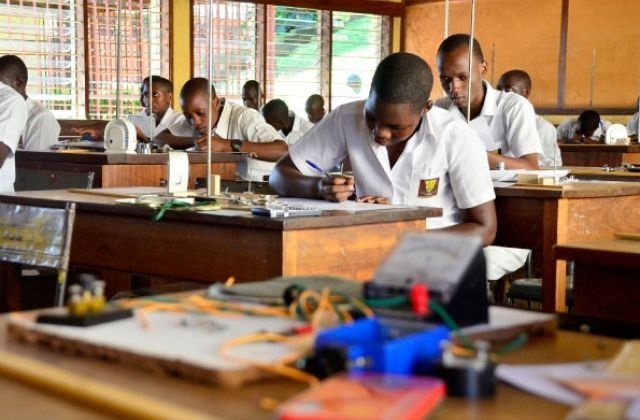
NEWS ANALYSIS | THE INDEPENDENT | The number of learners opting for science subjects and mathematics at the advanced level of education is gradually increasing, 20 years after the government started prioritizing and investing in sciences.
Since 2005, the study of science subjects became compulsory for O’level students, aligning with the government’s strategic investment in science education to create a critical mass of scientists and engineers for national development.
Efforts have also been made to promote science subjects at all levels of education, including increased funding for building laboratories, equipping them with the necessary equipment, offering scholarships to science and technology students, and supporting science teachers. Recently, the government increased science teacher pay by 300 per cent.
In line with the policy, Uganda has seen a significant increase in learners studying mathematics, chemistry, and biology. For instance, the analysis shows that in 2017, there were 22,863 learners registered for mathematics, while this number increased to 38,776 in the 2022 examination cycle, even surpassing the 2021 figure of 35,725, despite a drop in the overall number of candidates registered for the examinations.
But the Uganda National Examinations Board’s analysis of subject entries over the past five years shows a stagnant enrollment of around 2,000 students in physics. In several UNEB reports, low entries have been explained by the limited number of schools offering science subjects due to an inadequate number of science teachers and laboratories.
Problem of physics
Bernard Owere, a physics teacher attributes the low entries in physics to the predominant medical inclination among students, who deem it futile to undertake physics, which is not a mandatory requirement for any medical program at universities and other higher learning institutions. According to Owere, a substantial number of students opt for mathematics as a core component of their program, considering it to be comparably less demanding than physics.
However, the increase in enrollment numbers has not translated into an increase in scientists so far. Instead, it has brought to the fore, the poor performance of learners which, according to Dan Odongo, the Executive Director of UNEB, can be attributed to theoretical teaching with little practical experience given to the candidates at many of the examination centres.
UNEB records show that the failure rates for non-science subjects at the UCE level are typically between 10 to 20 per cent, while science subjects have seen failure rates of more than 40 to 60 per cent. Odongo adds that results from last year’s examinations have revealed that students are still struggling with genetics, ecology, the application of biological concepts to the environment, classification, and basic mathematical computations in biology.
Cissy Namukasa, the Head of Biology at City High School noted that, unlike other subjects, Biology is very broad and requires a deep understanding of each concept. She also pointed out that due to the nature of the subject, it is uncommon for teachers to complete the entire syllabus within the allotted time because the time allocated for Biology on the school timetable is usually equivalent to that of other subjects.
Namukasa suggested that the time allocated for Biology should be adjusted to provide more time for teachers to complete their syllabus, considering its wider scope.
Muyingo calls for review of teaching methods
But State Minister for Higher Education John Chrysostom Muyingo pointed the gun at teachers and called for a comprehensive evaluation of how Biology and other science subjects are taught. Muyingo emphasized the importance of retooling teachers, especially those who are already in service, through initiatives like the Secondary Science and Mathematics Teachers’ (SESEMAT).
Educationists argue that these efforts in place are still inadequate, as many schools still lack sufficient laboratory facilities and well-trained teachers. This argument is grounded in the observation that while the government is providing support to public schools, private institutions, which run a majority of secondary schools in the country, are not receiving equivalent support.
Muyingo says that this is being handled with the government extending secondary schools to different areas and also empowering schools with teachers and equipment which in turn eventually attract learners to science subjects. He however accepts that there is still a huge mountain before them.
In addition to Muyingo’s suggestions, Professor Mary Okwakol, the UNEB chairperson, emphasized the need for a comprehensive review to address the identified challenges. She pointed out that since the A-level curriculum is currently under review, it presents an opportunity for experts at the National Curriculum Development Centre to consider the challenges raised and provide appropriate solutions.
On the other hand, there are worries regarding the inadequate participation of girls in science-related subjects at this educational stage. There was even a national strategy to empower girls to pursue science subjects at A’level.
But, Edward Kanoonya, the headteacher of Kololo Secondary School, opined that a significant proportion of female students who would have otherwise pursued science subjects at the A-Level end up enrolling in nursing courses after Senior Four. To him, this must be considered while discussing the lower number of girls with science combinations at A’level.
Despite Kanyoonya’s explanation, Professor Okwakol highlighted that UNEB is poised to obtain funding for an all-encompassing research inquiry into the hurdles facing science subjects. The research will concentrate on comprehending why girls are not selecting these subjects so as to have data-based opinions regarding the matter.
*****
URN
 The Independent Uganda: You get the Truth we Pay the Price
The Independent Uganda: You get the Truth we Pay the Price



